Morgan Motor Company reveals its new all-electric prototype
The Morgan XP-1 is the British manufacturer’s latest attempt at electrifying its iconic hand-crafted lightweight sports machines
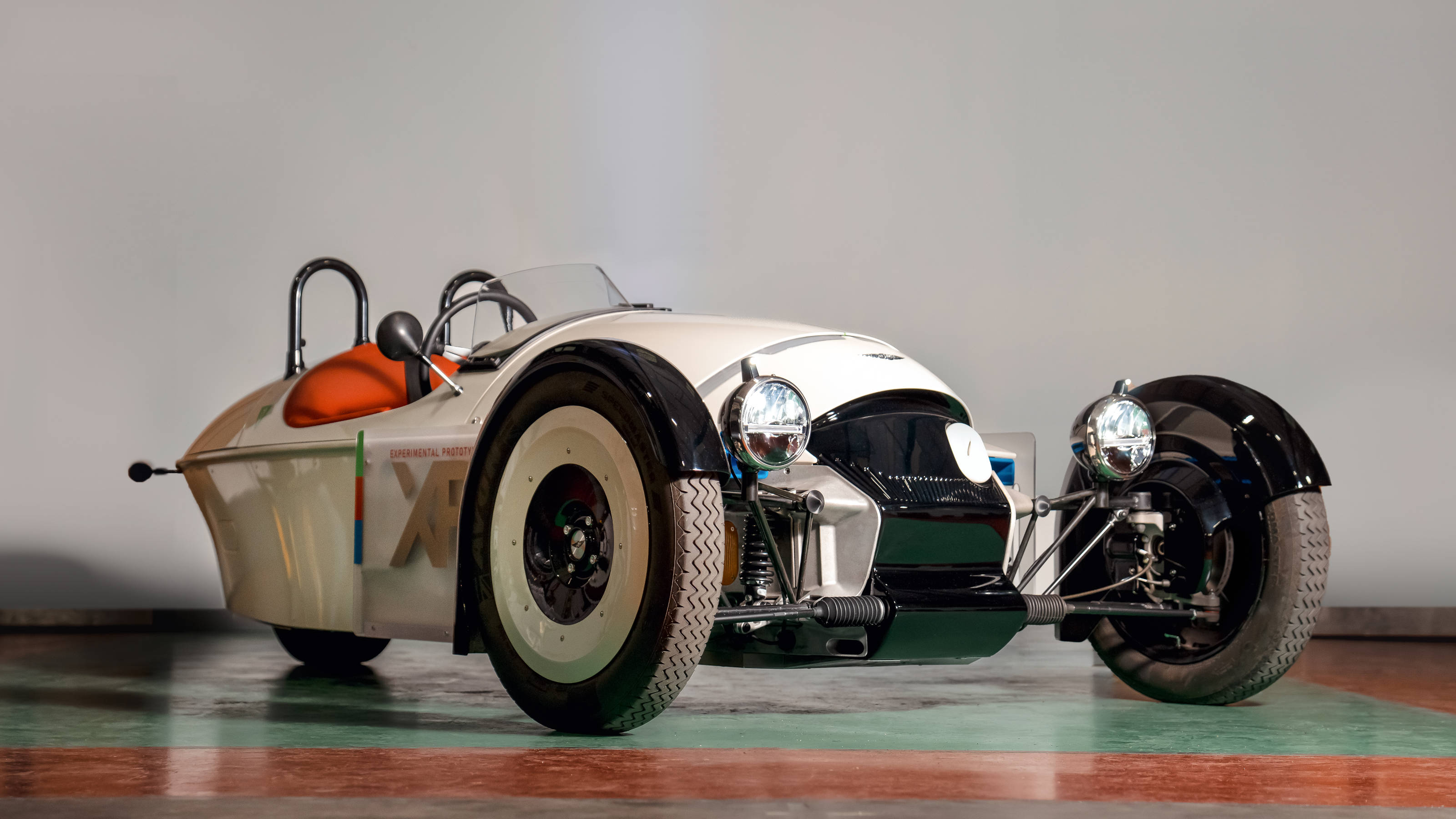
Receive our daily digest of inspiration, escapism and design stories from around the world direct to your inbox.
You are now subscribed
Your newsletter sign-up was successful
Want to add more newsletters?

Daily (Mon-Sun)
Daily Digest
Sign up for global news and reviews, a Wallpaper* take on architecture, design, art & culture, fashion & beauty, travel, tech, watches & jewellery and more.

Monthly, coming soon
The Rundown
A design-minded take on the world of style from Wallpaper* fashion features editor Jack Moss, from global runway shows to insider news and emerging trends.

Monthly, coming soon
The Design File
A closer look at the people and places shaping design, from inspiring interiors to exceptional products, in an expert edit by Wallpaper* global design director Hugo Macdonald.
British car manufacturer Morgan has survived by serving a niche. Founded 114 years ago, Morgan’s aesthetic approach is glacial at best, remaining trapped in producing a midcentury evocation of the classic small sports car. However, this approach has served the company very well for decades, and its current Plus Four and Plus Six models hew closely to that original template. Long waiting lists and a rabid, loyal following attest to its success.
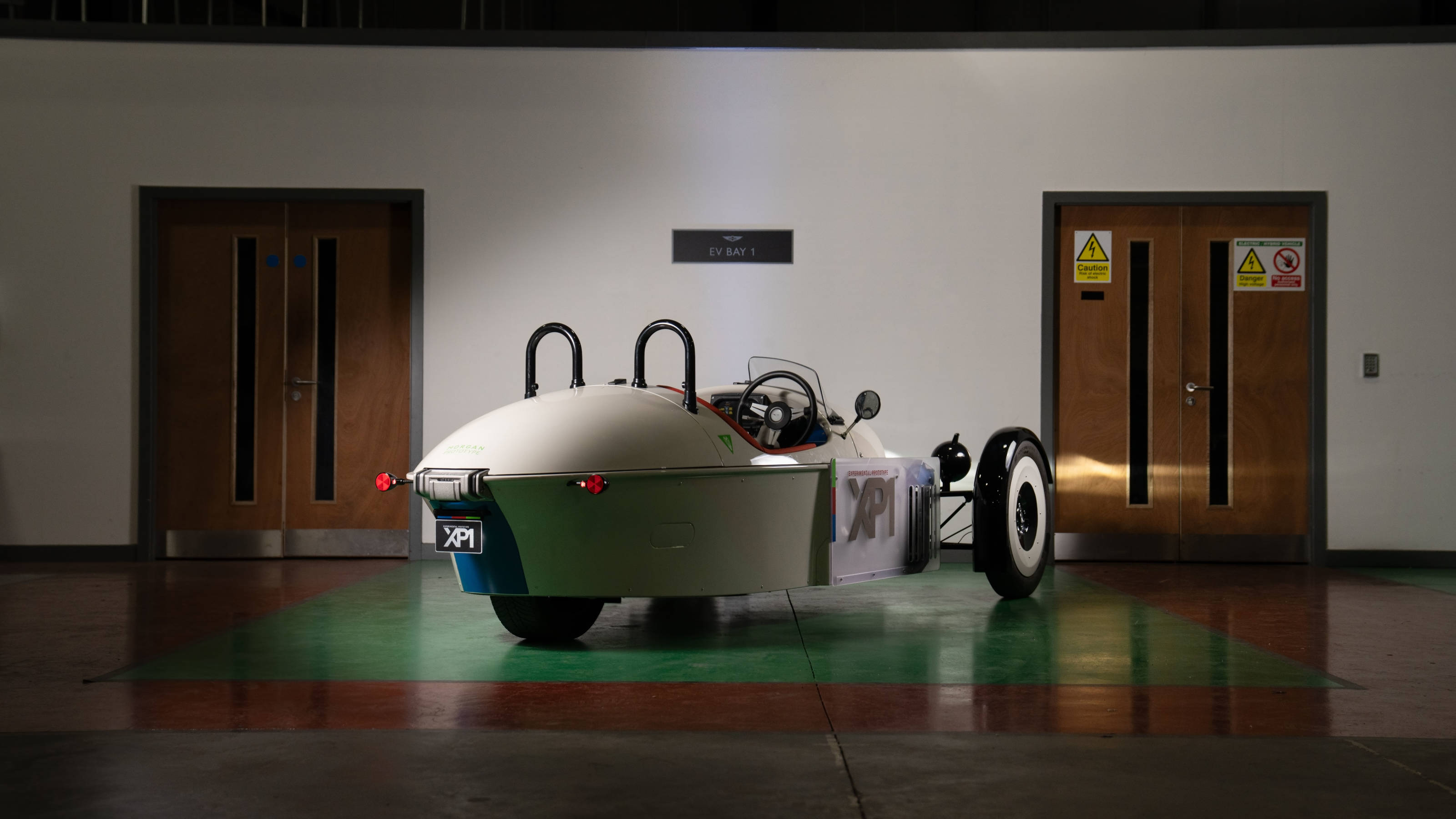
Sure, there have been design diversions, such as the streamlined Aero Coupé, but the Morgan maxim has remained remarkably steadfast in the face of rapid changes in car culture. The current Morgan Super 3 marked another notable diversion; although this epic three-wheeler has its conceptual origins in the Morgan V-Twin, the first of which was built way back in 1911, it’s a very modern looking machine, minimalist, purposeful and for the absolute purist.
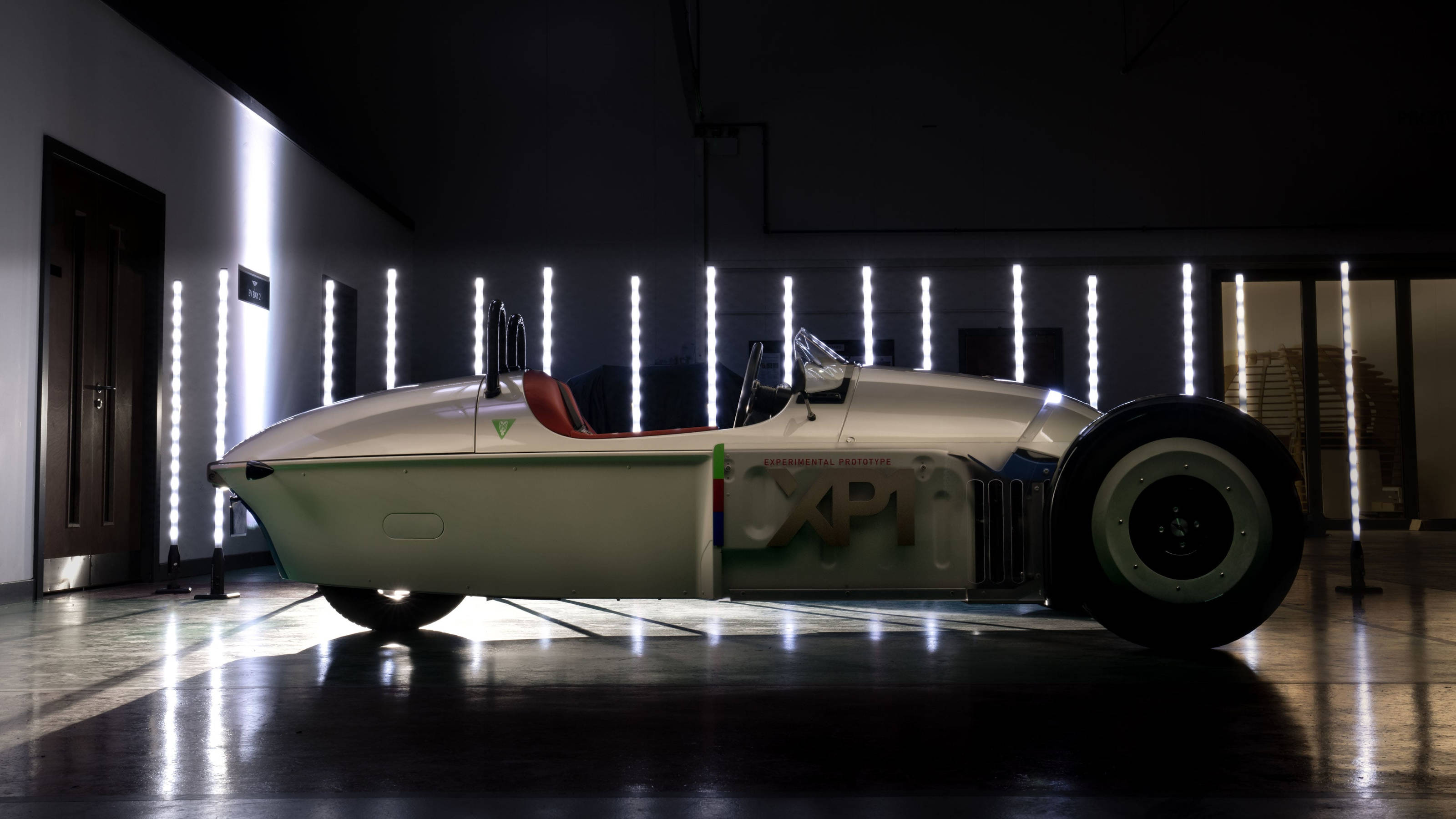
This is the Morgan XP-1, a prototype research machine that takes the Super 3 and adds the most crucial contemporary ingredient: electrification. Even micro-sized manufacturers like Morgan need to get in line with the electrification process, and the XP-1 Project is the first indication of how that might look and go.
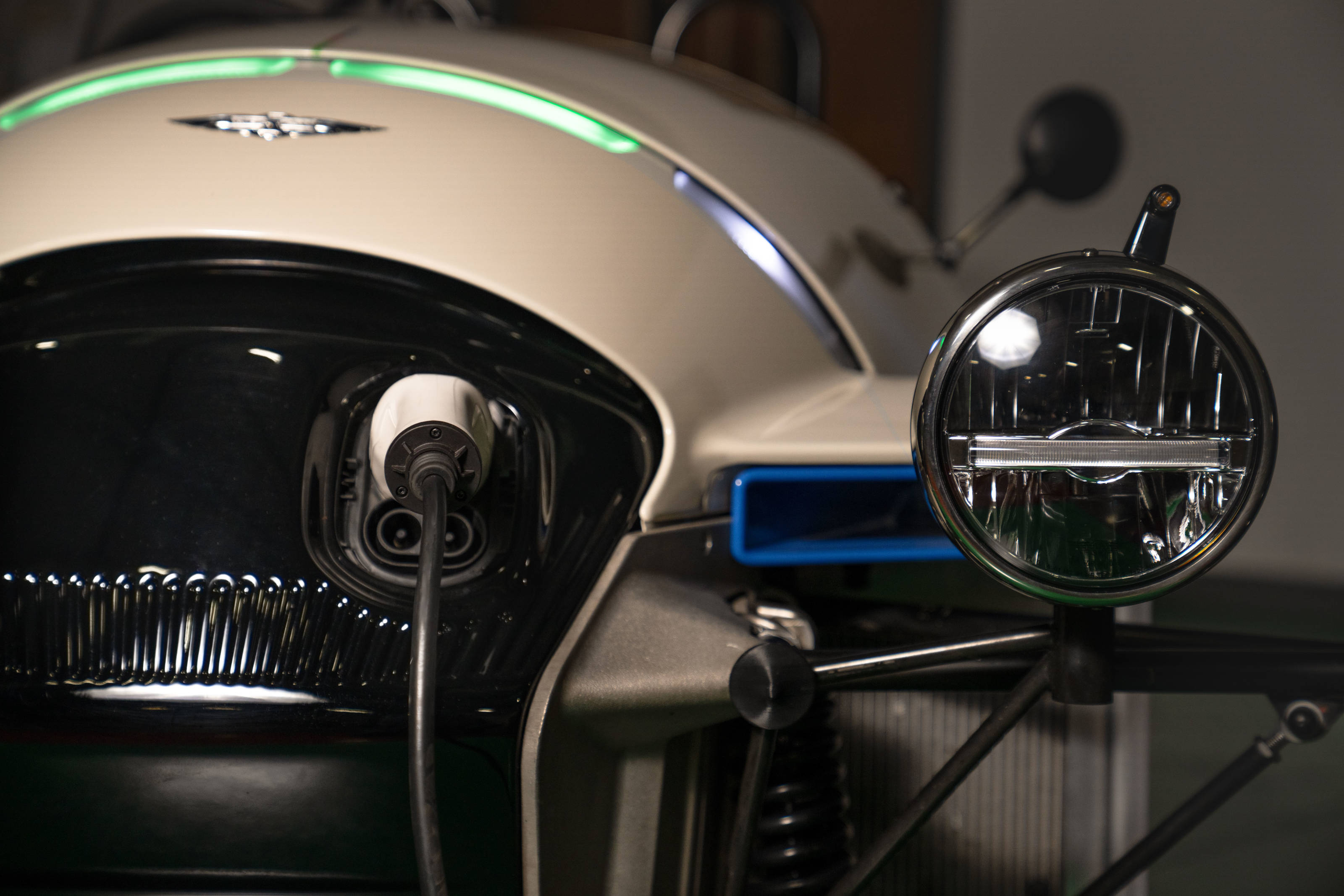
Morgan describes it as a ‘test bed for design, manufacturing, and engineering evaluation’, a way of ensuring the company’s core qualities and characteristics can be translated into the EV era. A two-year development programme lies ahead, with many crucial areas to cover, including weight – the Super 3 comes in at a feather-light 635kg, less than many EV batteries – and drivability.
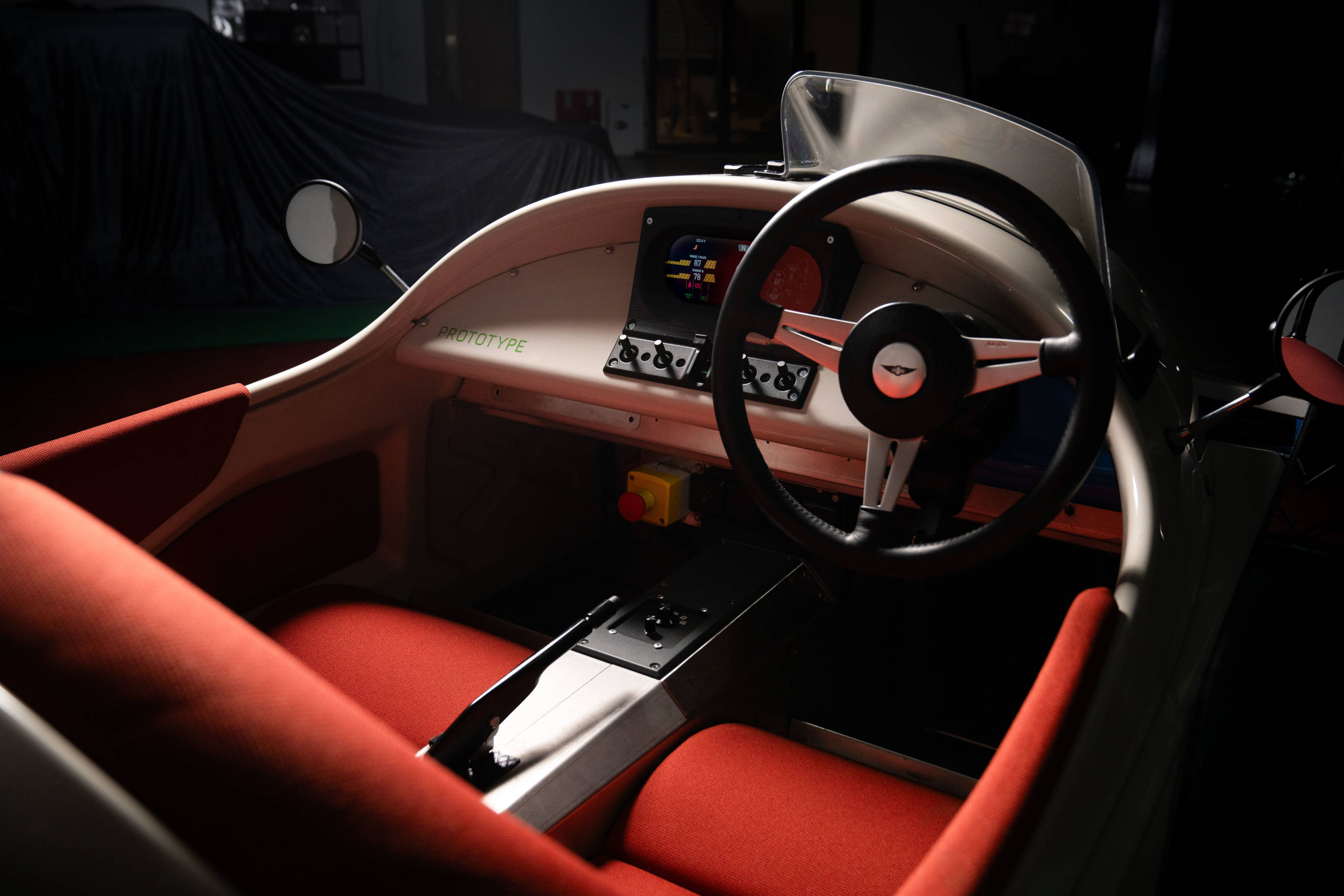
‘We are in no doubt that we can ensure future electric Morgan sports cars retain the core appeal of our current range,’ says Matt Hole, Morgan’s chief technical officer, ‘… they [have to be] fun to drive, lightweight, handcrafted and bespoke.’ A unique combination of battery and motor has been developed for the prototype, giving the engineering team the ability to try out a wide range of driving modes and dynamic feel. Revised aerodynamics will further help efficiency, with a bespoke interior display that’ll allow different approaches to the user interface to be tested.
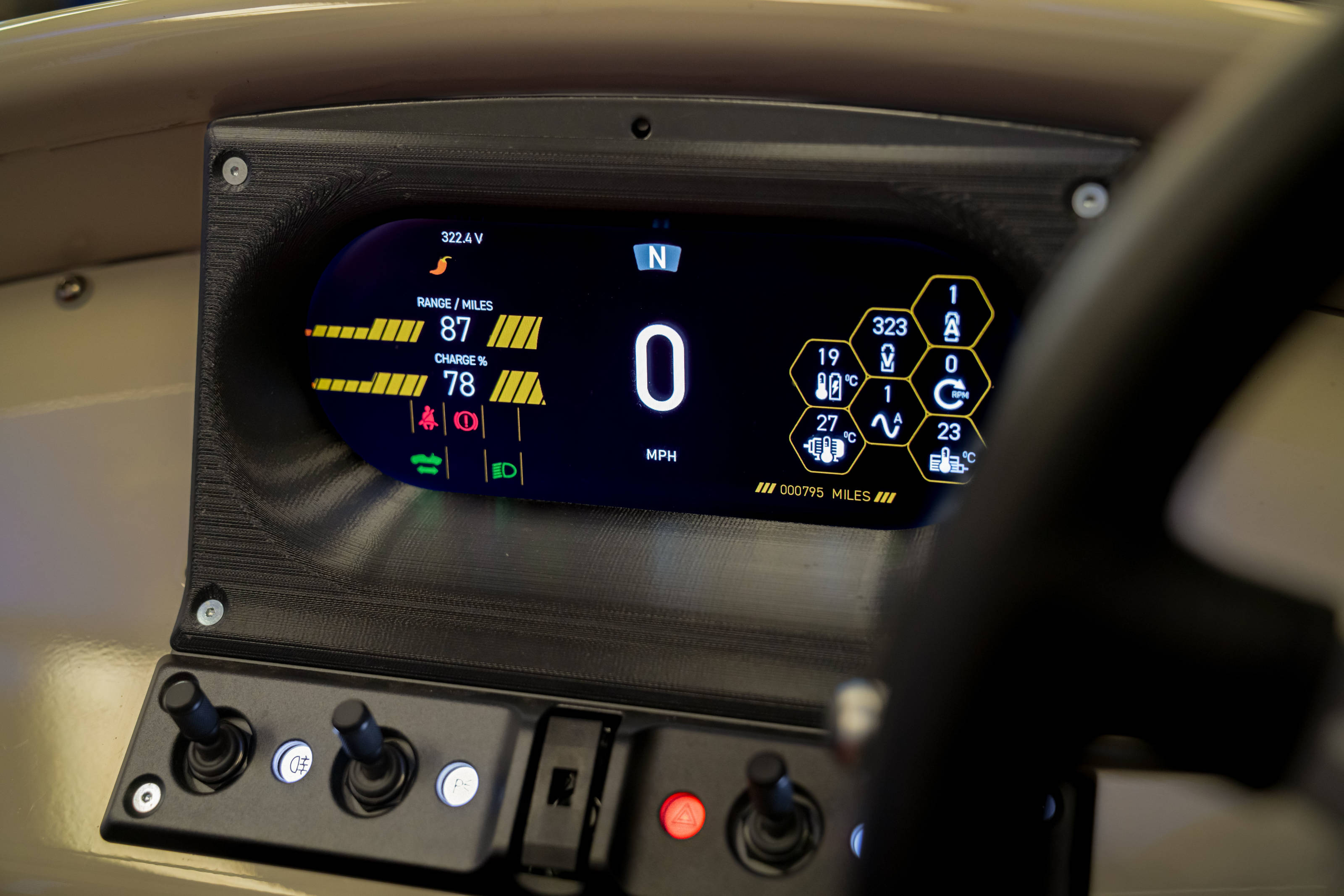
It's not the first EV from the Malvern-based company. In 2009, it built a solitary example of the Plus E, an electrified version of the evergreen Plus 4 developed in collaboration with Zytek Automotive. Six years later it showed the EV3 three-wheeler at the Geneva Motor Show. This was the XP-1’s true forerunner, and although production was slated for 2017 the project peaked too soon and was eventually cancelled.

We’re confident that Morgan can finally make this monumental shift, as long as it takes advantage of newer developments in battery tech that can keep weight down to manageable levels. As for how far you can travel, the open-air, low-slung and loud Super 3 isn’t exactly geared up to be a comfortable long-distance GT; perhaps a shorter range for the XP-1’s eventual successor will be a blessing rather than a curse.
Receive our daily digest of inspiration, escapism and design stories from around the world direct to your inbox.
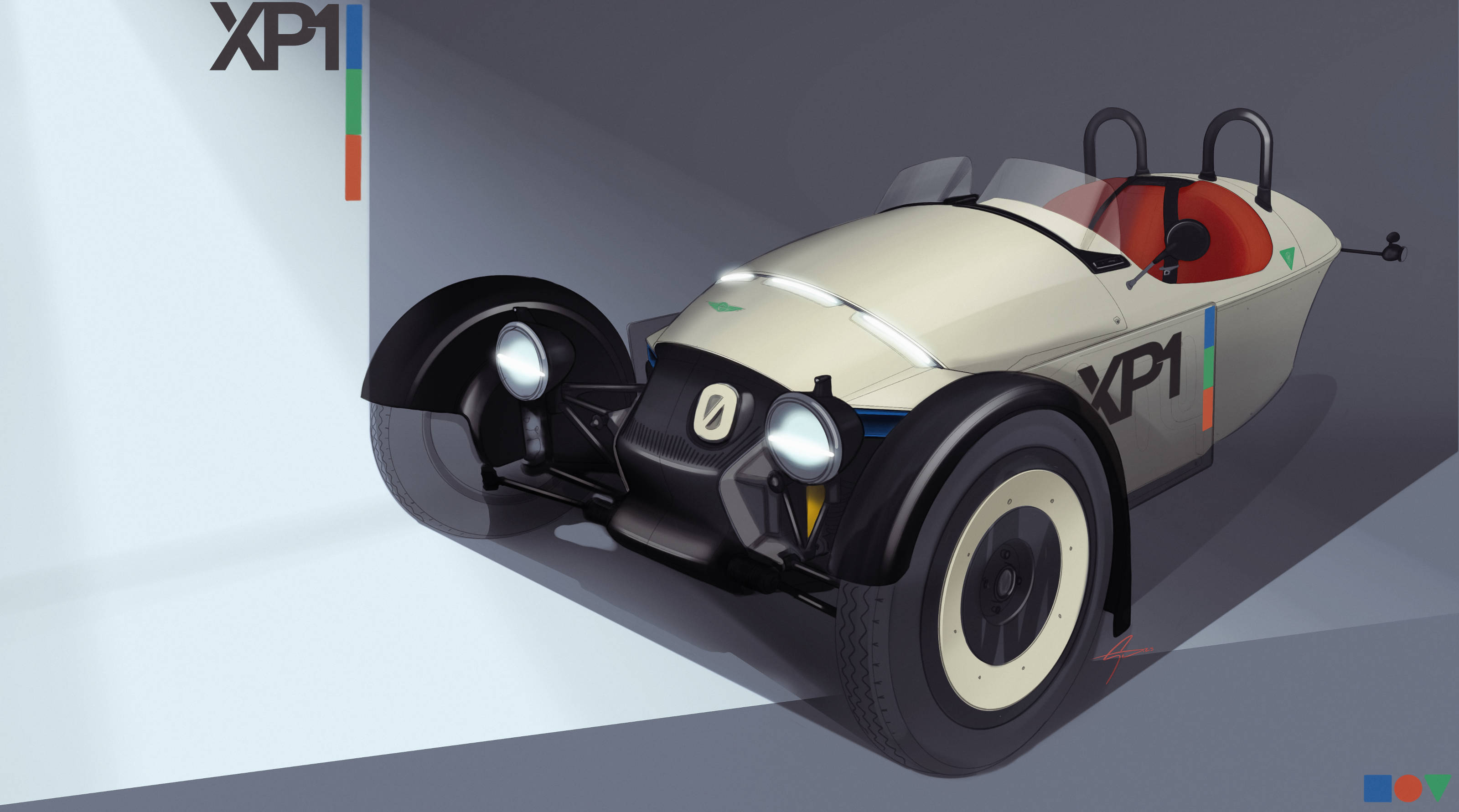
Morgan XP-1, prototype only, Morgan Motor Company, Morgan-Motor.com
Jonathan Bell has written for Wallpaper* magazine since 1999, covering everything from architecture and transport design to books, tech and graphic design. He is now the magazine’s Transport and Technology Editor. Jonathan has written and edited 15 books, including Concept Car Design, 21st Century House, and The New Modern House. He is also the host of Wallpaper’s first podcast.